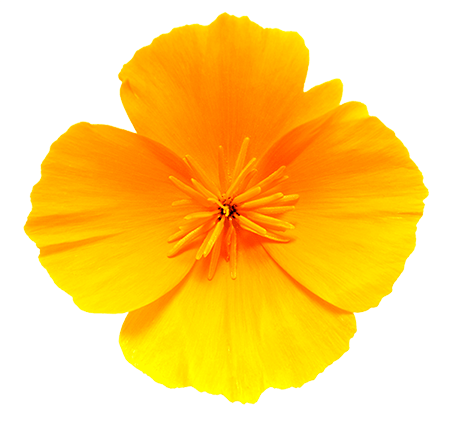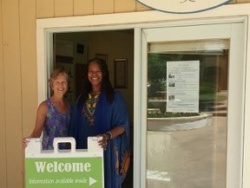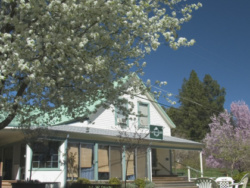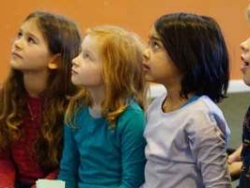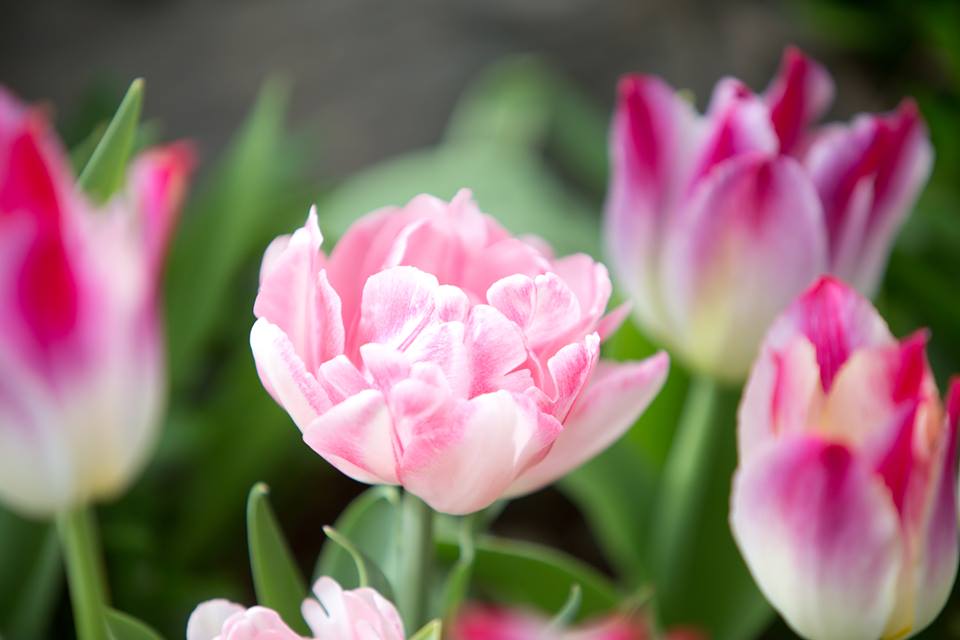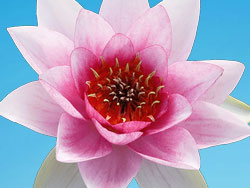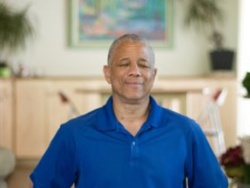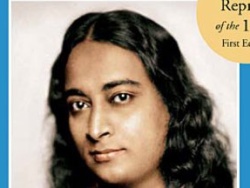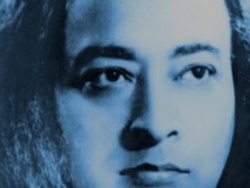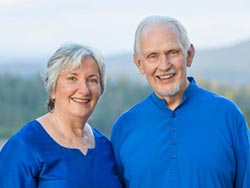When I prepare food, I am very aware of chanting and meditating and the conscious flow of energy from my hands into the food. Cooking and nurturing are two inner things that offer me a way to share and give to others. One of the ways I made my living here was baking cookies. I would bless every tray that I put in the oven and say a prayer for the food. It was real interesting, because people who were allergic to sugar would say, “I can’t eat sugar, but I can eat your cookies, and they don’t affect me.”
In the early days, and even now at the retreat kitchens, we chanted, prayed and meditated before we started cooking for the day. Throughout the cooking process, we’d play tapes of spiritual chants or music. The idea was to uplift our awareness and improve our state of consciousness so that the same energy could flow through us into the food we were preparing.
Before Ananda had more people living here, Kriyananda used to chant and sing a lot more. He’s very sensitive musically, and we used to have these beautiful kirtans all the time. I’ve had spiritual miracles happen here that are very deep and personal. But my first real experience of God came during a kirtan that Swami led at the Whole Earth Festival in Davis. We were chanting to Rama, and I had an experience of God consciousness then, an actual expansion of awareness that came to me through chanting.
I came here in 1970, and until 1986, when I married Purushottama, my strongest spiritual practice was japa. Chanting, or repeating the name of God, helped me focus on God. Chanting opens up the devotion of the heart because you’re singing songs of love to God, and that can be the most powerful thing. It helped me to get stronger in my realization that God is always present for me and that God is love. And it taught me that, through every test and trial, God is always present.
I started out as a single mother, so I naturally had the physical challenge of needing to earn an adequate living. In the early seventies, I made $60 a month working at the retreat, and while money wasn’t such a big issue back then, every dollar was! The hardest time for families was during the time of the monastery. If there was a satsang and Swami was be giving a talk, I would often need to leave with my two children. I remember once walking through the forest in tears, just needing to be with my kids alone. When you’re a single mother, you always need to be with your children.
I have been a parent now for 25 years. I like all the paraphernalia of spirituality, and I certainly exposed my children to it whenever possible. But it’s also important for parents to set good examples of right attitudes and to spend time with their kids. I’ve found that with children, they need to move outward. So in our family we talked a lot. I tried to be present for their questions, and I tried to instill attitudes that would lead them to a higher spiritual potential.
With my first two children, I really fought to maintain a daily sadhana, and to some extent I think it was really hard on them, because I would always shoo them away and tell them that they had to be quiet; my meditation time was really sacrosanct. I felt a great deal of pressure to meditate, because Swami was urging people at that time to meditate three hours a day. Because I had so much emotional turmoil, I used to spend a lot of my meditation time in tears just sort of offering the dysfunction of my life up to God.
But over time, I thought, “Well, I just give everything to God, my ability and my inability.” I thought that if I could just hang on to the desire to even want to meditate, then that intention is as important as actually meditating. What most people don’t realize is that there is much more to yoga, meditation and the spiritual path than just doing the spiritual practices.
There was a man who lived here once who probably meditated more than anyone. But meditation can also be completely egotistical if done with the wrong attitude. If you think, “I want God-realization for myself, and I don’t give a damn about anybody else, because it’s all just a dream, and other people aren’t important anyway,” then it’s a trap. Since he left Ananda, he’s spoken against us in the most malicious ways possible. So I don’t see what hours and hours of meditation does for anyone if they’re not also learning service, compassion, love, and non-judgment.
Yogananda said shortly before he died, “When I am gone, only love can take my place.” He was saying that only love can teach us what we need to know. What he meant was that no person, no scripture, no word can give us our truth, because truth isn’t something that you can say with words. Truth is an intuitive understanding within your own self, and you can only reach that when you’re in a state of love. Love is the ultimate teacher. To love unconditionally is the highest thing you can possibly do, and all the yoga, meditation and spiritual practices are merely tools. Meditation is simply a tool to internalize one’s consciousness and free one from attachment to the world.
When we first started the Village Council, there was a small group of people who basically ran everything. We would have meetings and the phrase, “What’s trying to happen here?” was ever-present. Before each meeting, we would pray and meditate, and afterwards we would all say what we thought, and try to reach a higher level. We didn’t argue to get our individual points across, but we would always try to work cooperatively to do what was best. That’s one of the important goals of living in a spiritual community. To try to put into practice, in a very conscious way, the principles of love and truth.
